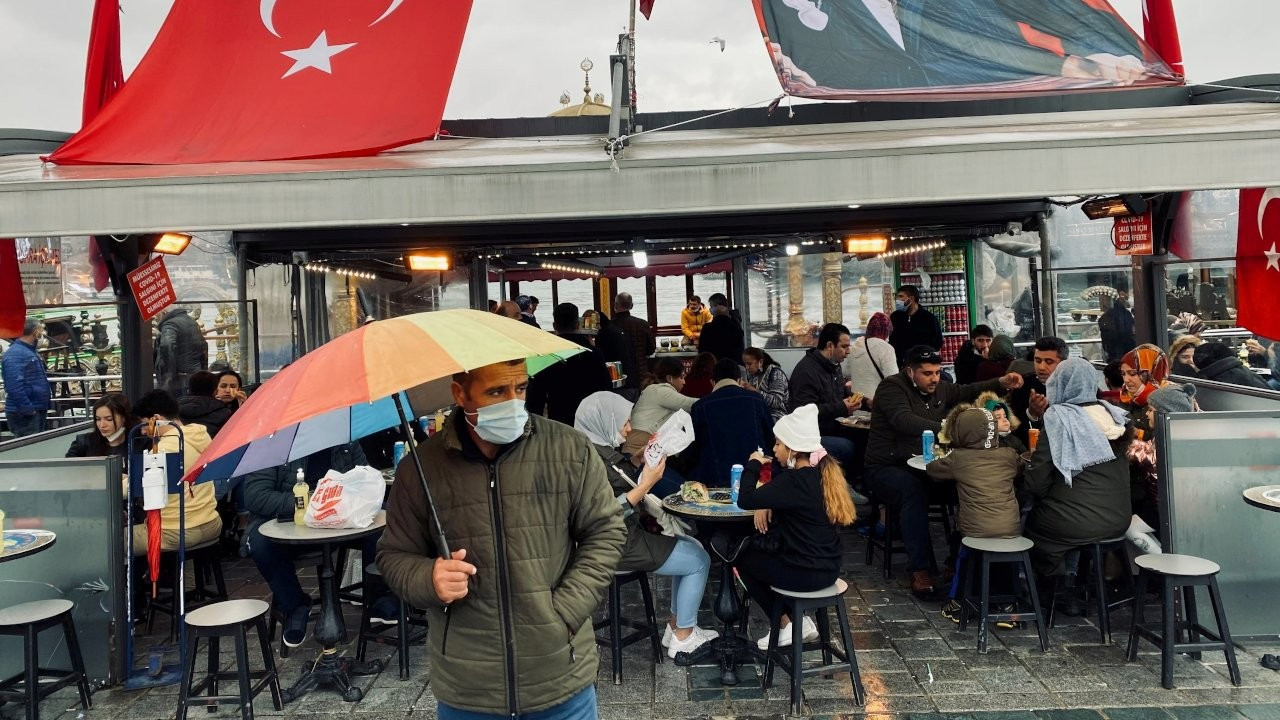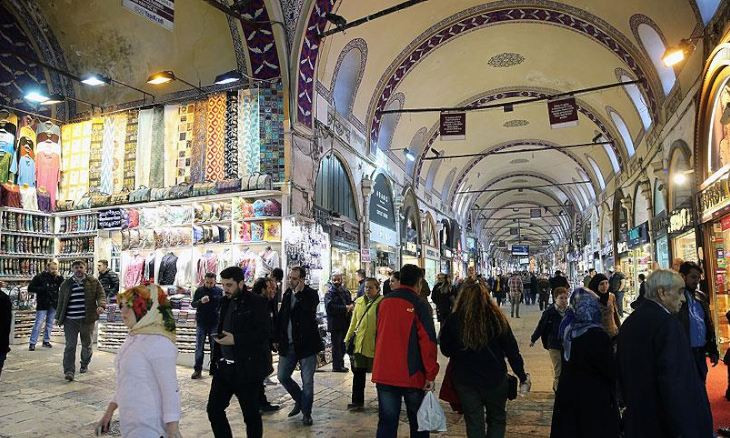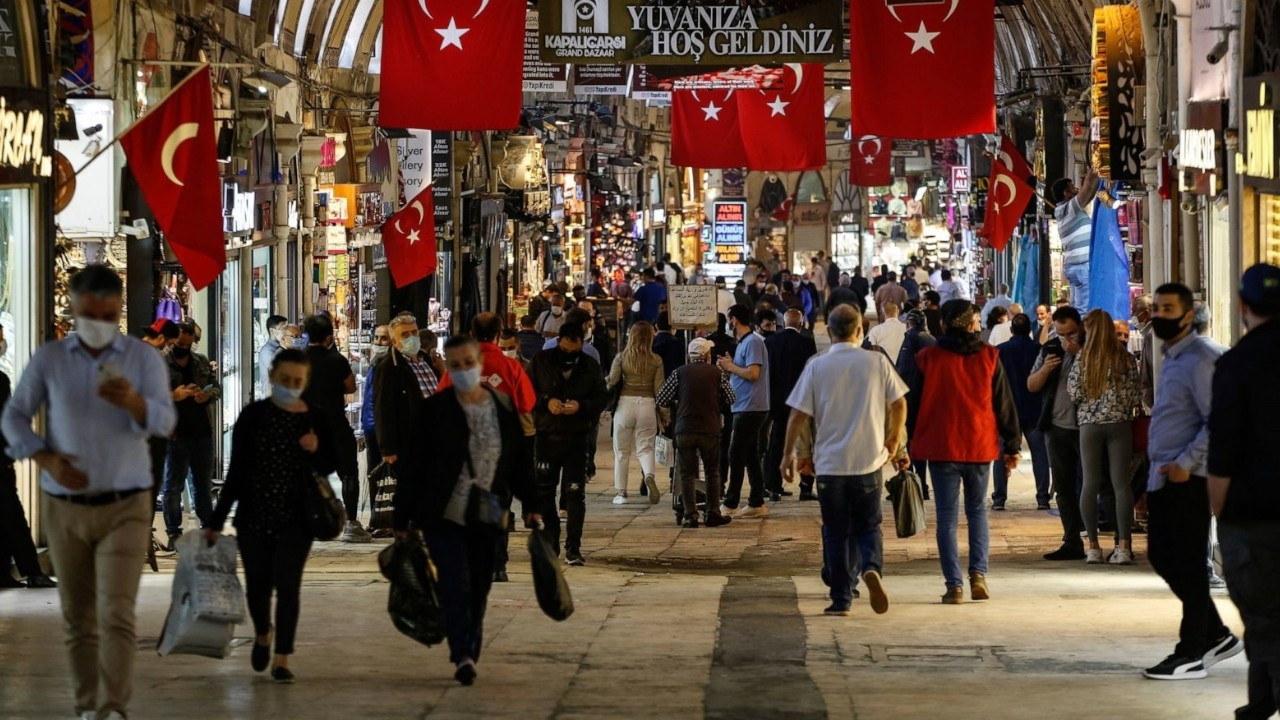Turkey among ten worst countries in the world for workers
The International Trade Union Confederation's (ITUC) 2021 Employee Global Rights Index ranked Turkey as one of the "ten worst countries in the world for workers."
K. Murat Yıldız / Duvar English
Turkey is listed among the "Top 10 Worst Countries in the World for Employees" in the International Trade Union Confederation's (ITUC) Employees' Year 2021 Global Rights Index report, which brings together Trade Union Confederations and employee organizations from 163 countries and represents over 200 million members.
According to the report, the top 10 countries where the right to strike, the right to form and join a union, the suppression of trade union activities and civil liberties, the right to freedom of expression and assembly, the weight of wages and working conditions of workers, and the exploitation of labor are most prevalent were Turkey, Bangladesh, Belarus, Brazil, Colombia, Egypt, Honduras, Myanmar, Philippines, and Zimbabwe.
The countries on the list are underdeveloped, poor, have autocratic, dictatorial or military juntas.
In addition to the 10 million unemployed people in Turkey, the report shows like many similar studies that millions of employees are suffering from severe poverty, wage inequality, unequal distribution of benefits, suppression of social, human, labor, and democratic rights, and so on.
‘Brutal repression of strikes’ and ‘union busting’ in Turkey
The report highlighted the “brutal repression of strikes” and “union busting” in Turkey while noting that “the government of Turkey continued to impose severe restrictions on civil liberties, and workers’ freedoms and rights were relentlessly denied with police crackdowns on protests, while trade union leaders were arbitrarily arrested and their homes raided,” and that “employers engaged in systematic union-busting by methodically dismissing workers who attempted to organize...”
The report also included examples of violent attacks on workers and the right to free speech and assembly in Turkey.
COVID-19 used to justify right violations
While listing the numerous violations of employees' and unionized workers' rights in the ITUC report, it stated that governments in countries such as Turkey have used the COVID-19 pandemic as justification for further rights violations.
The ITUC Global Rights Index for 2021 examined how governments and employers are using the pandemic to fire workers who have revealed critical information about the virus's spread in the workplace, highlighting violations of collective bargaining rights and restricting or prohibiting freedoms of speech, strike, and assembly.
The world’s worst regions for workers according to the report were the Middle East and North Africa. In addition, four Turkish companies were named explicitly in ITUC’s Report noting that they “violated workers’ rights, are linked to a violation of workers’ rights or failed to use their leverage to address workers’ rights violations.”
The report pointed out that governments in countries like Honduras, India, Indonesia, Slovakia, and Uruguay are restricting workers' rights by enacting repressive legislation, and many countries, including Turkey, have an "anti-union agenda" and that workers have been subjected to usurpation, violations of rights, and attacks by governments at a higher rate than before during the pandemic.
The Confederation of Progressive Trade Unions of Turkey (DİSK) based on state Social Security Institution (SGK) data revealed earlier that in Turkey employers fired at least 500 workers per day despite the official ‘lay-off ban’ during the pandemic.
ITUC’s report also pointed out that COVID-19 was used as an excuse to single out trade union members and force them into unpaid leave in Turkey.
Worker rights deteriorated during pandemic
According to the report, the number of countries that attempted to prevent union membership by making it difficult in 2020 increased from 89 to 109, while the number of countries where freedom of expression, assembly, strikes, and rights-seeking actions were prohibited or restricted increased from 56 to 64.
Similar restrictions have been put in place in Turkey since the start of the COVID-19 pandemic and resulted in incidents such as the arrest of 109 workers and members of the Turkish Metal Union during their march from Gebze to Ankara as well as detentions during the May 1 International Workers’ Day.
“The pandemic brought labor and union issues to the forefront. It comes as no surprise to us that Turkey is one of the world's ten worst countries for workers. At a meeting with business leaders, the President of this country openly admitted that his government used the State of Emergency imposed after the coup attempt to eliminate union rights and ban strikes,” Seyit Aslan, President of Turkish Food Industry Workers Union (GIDA-İŞ) told Duvar English.
Pointing at Erdoğan’s track record regarding union and labor rights, Aslan said, “Under President Erdoğan's leadership, the country experienced the highest number of strike bans. During this time, the government was always on the side of the employer. Union and labor rights activism has become extremely dangerous and difficult in recent years,” and added that “On paper, the number of unionized employees rises, but these are all public workers who are directed to pro-government labor unions. In reality, due to legal barriers etc., unionization in the private sector is regressing, and workers' rights are being eroded at an increasing rate.”
Turkey country with the highest number of workplace homicides in Europe
Underlining the fact that Turkey ranks first in Europe for the highest number of people killed in workplace accidents, according to Eurostat, the European Union's official statistics office, and the Turkish Social Security Institution (SGK), Aslan noted that, “Working conditions are also very bad. Workers die in thousands every year. This is not a coincidence.”
As noted in ITUC’s report, Aslan was also detained multiple times during the COVID-19 pandemic which the authorities used to suppress workers and unionists.
“Despite the fact that we were all wearing masks and following social distance rules, the police teargassed, clubbed, and detained more than 100 of us when 50 of our friends wanted to march from Gebze to Ankara to tell the Minister of Labor about their problems. At the same time, President Erdoğan held massive party rallies around the country, boasting about the number of people who attended them,” he concluded.

 Turkey's youth worried about their social, economic well-beingEconomy
Turkey's youth worried about their social, economic well-beingEconomy Consumer loans, credit card expenditures provide Turkish economy with fleeting lifelineEconomy
Consumer loans, credit card expenditures provide Turkish economy with fleeting lifelineEconomy 'Over 47,000 shopkeepers went bankrupt in first half of 2021 in Turkey'Economy
'Over 47,000 shopkeepers went bankrupt in first half of 2021 in Turkey'Economy